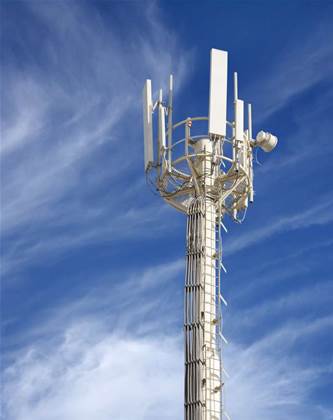The Australian Communications and Media Authority is receiving about 50 complaints a week about instances of radiofrequency interference.

Executive manager of the operations and services branch, Mark Loney, told the ACMA's annual RadComms summit the authority had about "75 open complaints" concerning interference as at the end of last week.
"We get about 50 complaints of interference a week [and] we resolve about 50 a week," he said.
"The average time that we have an interference case open is about three weeks.
"Some are dealt with much faster because they deal with public safety or they're having a major impact on public access to telecommunications [services]."
Despite the number of complaints increasing over time, Loney believed that the numbers were "pretty good" considering the "tens or hundreds of millions of devices" in use in Australia.
In the past, illegal mobile repeaters and jammers have caused interference problems for mobile users, and have been targeted by the ACMA in its compliance agenda.
Mobile phone repeaters were made "controlled devices" in August this year, meaning that they can only be supplied "to someone that has a written authorisation from the relevant carrier or carriers, and the supplier must keep a record of the purchaser," Loney said.
Previously, they had been available for sale online and caused problems for regulators, carriers and mobile users alike. Telstra told iTnews last year it believed a "vast undercurrent" of such devices were operating in Australia, causing interference problems in cell sites.
"We can [now] keep track of who's got them," Loney said, adding that the stricter sale requirements meant there could be checks whether such repeaters were fit-for-purpose for a user's requirements.
"We're at the information and education part of this issue now," he said. "We're writing to suppliers [of repeaters] making sure they're aware of the new arrangements and their obligations."
There continues to be a range of other more unusual sources of interference. This year, a rogue beer fridge was pinged for interfering with mobile networks in regional Victoria, while a tower crane was found to be blocking line-of-sight between microwave backhaul towers in central Queensland.
Loney said yesterday the ACMA had started seeing interference problems from systems used by certain service station operators to change petrol pricing on their roadside displays.
He said the interference was a result of varying class licensing bands: the wireless hardware in question is set up to operate in a wider portion of spectrum than is class licensed for such applications in Australia.
"We're aware of a few instance of this device and working with the operators to try and find out what the supply chain arrangements are," Loney said.
The ACMA wanted to locate the alleged supplier of the systems to have the problem hardware "reconfigured to meet Australian requirements" if it continued to be sold in Australia.


_(20).jpg&h=140&w=231&c=1&s=0)
_(28).jpg&h=140&w=231&c=1&s=0)

_(23).jpg&h=140&w=231&c=1&s=0)



_(26).jpg&w=100&c=1&s=0)

 iTnews Executive Retreat - Security Leaders Edition
iTnews Executive Retreat - Security Leaders Edition












_(1).jpg&h=140&w=231&c=1&s=0)



